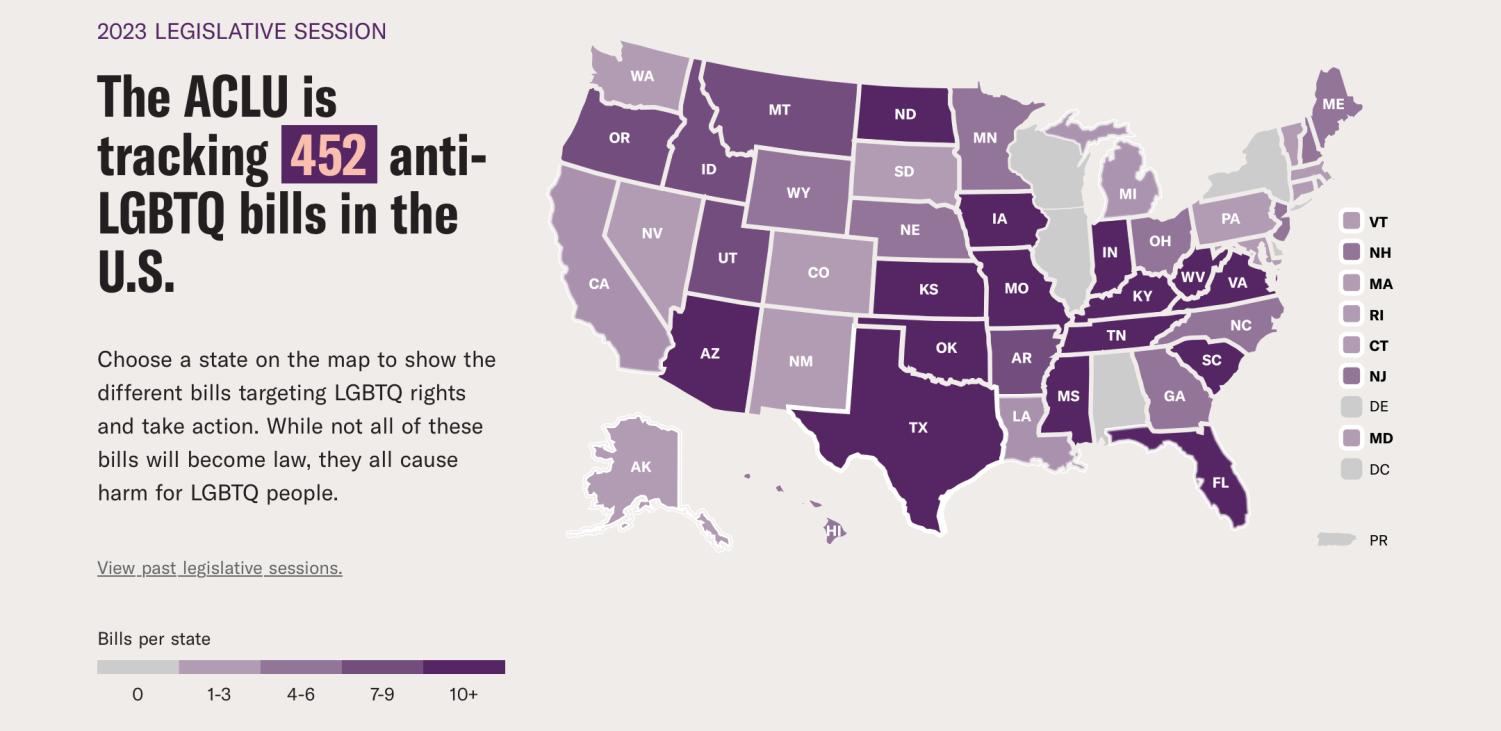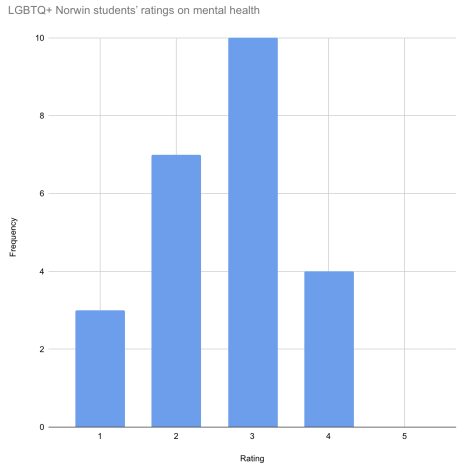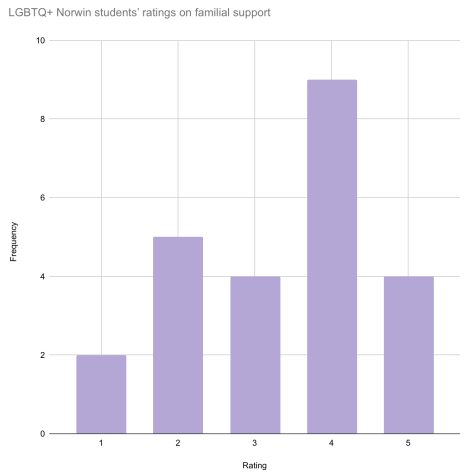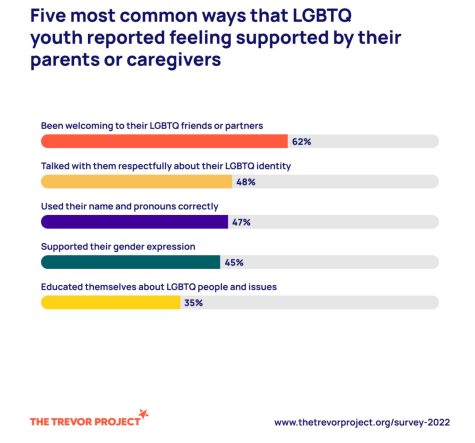The importance of support for LGBTQ+ youth
Sitting in class, trying to avoid your eyes from glazing over from boredom, you snap back to reality as a notification pops up on your phone screen. A breaking news tweet from a local news station interrupts your thought process as the message, fully capitalized, grabs your attention: BREAKING NEWS: GENDER AFFIRMING HEALTHCARE BANNED FOR MINORS. The care that you and many of your friends rely on is now not an option. Life for transgender youth in your state is forever changed.
This is the reality for thousands of LGBTQ+ kids across the country. The amount of anti-LGBTQ+ legislation being introduced to state legislatures in the past few years is worrying for the mental and emotional health of countless children. For an enjoyable and healthy childhood, it is necessary that LGBTQ+ youth receive adequate support from their families, peers, and communities.

According to the Trevor Project, a nonprofit organization dedicated to emergency counseling for LGBTQ+ youth, “45% of LGBTQ youth seriously considered attempting suicide in the past year.”
Due to various systemic issues like homophobia, transphobia, bullying, neglect, and poor reactions from families, LGBTQ+ youth disproportionately struggle with their mental health. Support and acceptance is very important to a child’s development, and a lack of it can cause serious issues of self doubt and poor acceptance of oneself.

English teacher and Norwin Gay Straight Alliance (GSA) adviser Mrs. Angela Hufnagel has seen this in countless students: “In my experience, LGBTQ+ students struggle coming to terms with who they are and loving themselves. The fears that come along with it, ‘Will I be liked? Will I be accepted?’”
This is not purely a trend among LGBTQ+ youth at large; it is a problem locally, including in the Norwin School District.
According to a recent poll of LGBTQ+ Norwin students, 17.4% reported that the biggest impact on their mental health is a lack of support from loved ones.
As children and young adults face countless stressors throughout the day that may already deteriorate their mental health, being in an environment in which they are harassed or left out because of who they are can only cause things to worsen.

“A teenager’s mental health is already bad enough,” senior Alex Fumero said. “When in a volatile environment where you feel like a part of you is intrinsically rejected by people around you, it can lead to an awful spiral.”
In addition to the standard bullying and neglect, discrimination in the form of persecuting legislation, hate crimes, and other aggressive behavior is another factor in the mental health of LGBTQ+ youth.
Child Trends, a nonpartisan research center on children’s health and wellbeing claims that, “Discrimination against lesbian, gay, bisexual, queer, and/or questioning (LGBTQ) youth remains a contributing factor to the disproportionately high rates of socio-emotional distress and mental illness among LGBTQ youth, when compared to straight and cisgender youth.”
Most recently, attacks on LGBTQ+ youth have been in the form of proposed legislation targeting gender affirming healthcare for transgender youth and drag shows.
“Recent political attacks aimed at transgender and nonbinary youth have not only threatened their access to health care, support systems, and affirming spaces at school,” Dr. Jonah DeChants, a research scientist with the Trevor Project, said. “They’ve also negatively impacted their mental health.”
The mental health struggles and feelings of isolation that LGBTQ+ youth face are not the kind of issues that have no answer. Though mental health is complex and not easily fixed, it can be addressed starting with two simple things: support and understanding.
“Having a support system would allow for people to feel much more comfortable with who they are,” a senior said. “It would most likely reduce feelings of loneliness and in turn reduce rates of depression, anxiety, and other mental health issues brought on by being unsupported by those around someone that’s part of the LGBTQ+ community.”
Support systems for LGBTQ+ youth can occur in many forms. Whether that be clubs like the GSA or just a group of supportive friends. These kinds of groups that connect people based on their interests are very important, especially for young adults.
“I do think clubs and other organizations could be very valuable to students,” Hufnagel said. “I cannot differentiate between a club where you explore your interests in say argument and debate versus a club where you explore your interest in supporting students like the Peer Mentor Buddy Club or foreign language clubs that bring students around a common interest. I think every kid deserves a club that allows them a place to be with people who have common goals and interests. I think it’s critical that clubs like that exist in all schools.”
In fact, a majority of Norwin students find that they feel most supported in their identities when they are around their friends.
96 percent of LGBTQ+ Norwin students reported that they feel most accepted when they are with friends, as opposed to at home, school, work, or online.
Youth often feel most supported by their friends as they are the ones that understand them best. Whether their friends are allies that simply use their preferred pronouns and name, or they lend an ear when they find their friend struggling, other youth are particularly good at providing LGBTQ+ children with a support system. Especially if they are LGBTQ+ themselves.
78 percent of LGBTQ+ Norwin students reported that having friends that are also LGBTQ+ makes them feel supported in their identities.
Even individuals who are not LGBTQ+ can make a difference in the life of someone who is.
“Participating in activism and awareness as much as we do can help the LGBTQ+ community,” sophomore Null Kieffer said. “Even something as small as a cisgender person putting their pronouns in their social media bio, or wearing them as a pin like trans people would is a great act of support. Allies shouldn’t be afraid of associating themselves with us, and the best thing they can strive for is normalization between us and cishet (cisgender, heterosexual) people.”

Improving support for the LGBTQ+ community can also occur through better, more thorough representation in the media. Many communities find their cultures and identities misrepresented or unrepresented entirely in mainstream media.
“Allowing for better representation within the media can show that LGBTQ+ individuals aren’t ‘disgusting’ or ‘a sin’ but human and deserving of kind treatment like anyone else,” one senior from the poll said. “Being able to teach people this message from an early age can help reduce the stigma surrounding the LGBTQ+ community. While there may be backlash from this process, it’s an issue worth fighting for because so many people are struggling with who they are and they deserve to feel safe. Queer people are just as human and as vulnerable as anyone else is, so they need to be treated with respect.”
Fundamentally, increasing support and making LGBTQ+ youth feel accepted in their identities is not difficult. Purely honoring their identities and abstaining from harmful forms of discrimination could drastically improve the mental health and overall well-being of thousands of kids across the country. However, there are many steps needed to be taken to overcome the bigotry that deprives these children of the acceptance they need to have a safe, enjoyable youth.
“I think that support is significant,” Hufnagel said. “It is, perhaps, the most critical thing a young person needs. They just need love and belonging.”

Elizabeth is a senior and a second year writer for the Knight Krier. She is the Vice President of the Science Challenge Squad, Treasurer of the Student...






